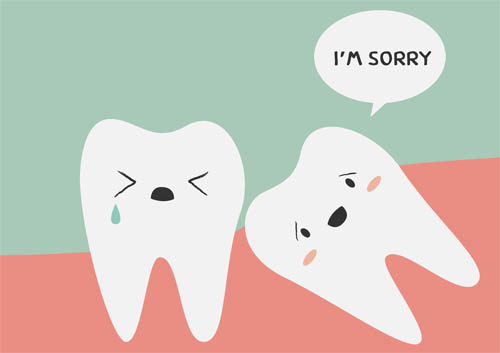Healthy Gums and Older Adults
February 29th, 2024

One of the most important parts of staying healthy as we grow older is being open to learning new ways of staying healthy! While worrying about braces or wisdom teeth might be a thing of the past, there are new dental concerns that come with mature years. Taking care of our gums is one way to maintain not only our dental health, but to look out for our overall health as well.
- Periodontal disease is preventable for older adults
While gum disease is all-too-common among older adults, it isn’t really a result of the aging process itself. If you have been keeping a regular schedule of brushing and flossing (two minutes twice a day), and have been making routine visits to our office for exams and cleaning, you probably have avoided gum disease. But if you have been neglecting your dental care, gingivitis and periodontitis are conditions that only become more serious over time.
The first symptoms of gingivitis include puffy, swollen gums that may bleed easily. Persistent bad breath and changes in the bite or the fit of dentures are also indications of gum disease. As gum disease progresses it leads to periodontitis. The gum tissue pulls away from the teeth, leaving deep pockets of tissue where plaque can collect and infections can develop. Infection, left untreated, can lead to loose teeth and even bone and tooth loss.
The good news? It is never too late to treat gum disease. Most gingivitis is reversible, and modern periodontal treatment makes use of deep cleaning, antibiotics, and even gum surgery to restore gum health. Don’t let past neglect lead to future tooth loss. We are happy to see you any time to treat your gums and teeth and to let you know ways to protect them for a happy, healthy future.
What new concerns do we face as we age?
- Our gums recede.
This natural recession can lead to the exposure of the root areas of the teeth, which are more vulnerable to cavities. It’s very important to keep up with brushing, flossing, and regular check-ups to catch potential small problems before they become big ones.
- Old fillings and dental work can break down.
Call our Naugatuck office any time you notice a problem with a filling, and keep up with exams, where we can pinpoint fillings that need replacement and detect cavities that can develop near the edges of old work.
- Medications can cause side effects that affect our gums.
Some medications cause the growth of puffy gum tissue. Some can cause dry mouth, which can lead to gum disease. Always let us know about any health conditions you have or medications you may be taking. We can suggest a number of options to reduce or eliminate effects on your mouth and gums.
- Gum health and our overall health—what’s the connection?
While no one has discovered an absolute relationship between gum disease and other health problems, there is growing evidence that higher rates of diabetes complications, heart disease, and stroke are linked to higher levels of gum disease. Make your medical and dental health a priority.
- Smoking risks increase with age.
Studies have shown smokers have not only a greater risk of gum disease, but more severe gum disease as well. Your risk of developing oral cancer also increases with every year you smoke. It is never too late to quit! Talk to us about suggestions for breaking the habit once and for all, and be sure to keep up with regular checkups for early detection and treatment of any oral diseases caused by smoking.
Please let us know any changes that have taken place in your dental habits, medical condition, or medications. Talk to us about any periodontal concerns you may have, or the latest dental procedures we offer for gum care and treatment. We can let you know about products that can make brushing and flossing easier as you age.
It’s never too late or too early to think about taking care of yourself. We are happy to offer suggestions for maintaining or restoring your dental health that will serve you well in any chapter of your life.





